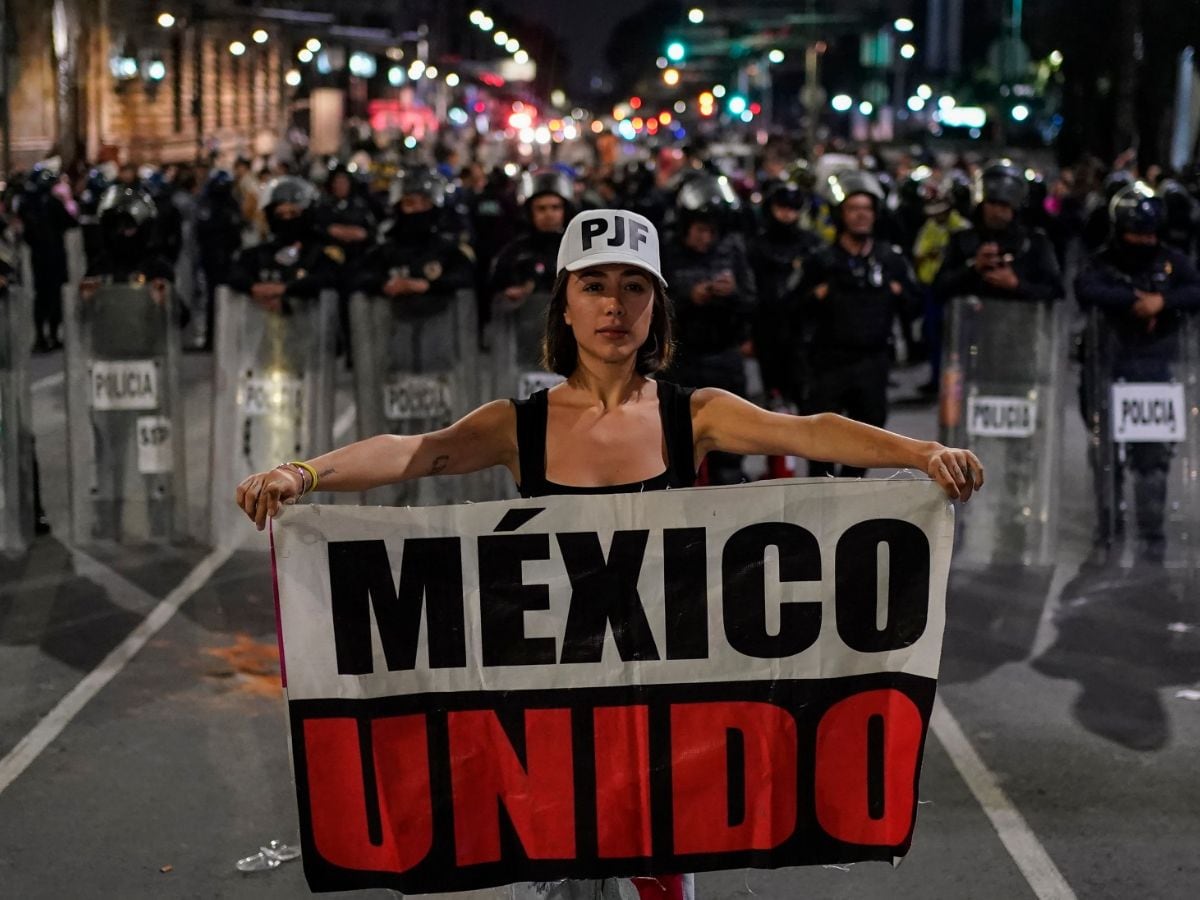In Mexico City, which is known as a city of culture, people boiled with anger. People are protesting not only in the city but all over the country. Even a crowd of people entered the parliament there. The MPs had to run away to save their lives. The reason for this uproar is that the right to elect judges across the country has been given to the public. It may sound strange, why is the public opposing the right given to them. But the people of this country, which was once a stronghold of drug cartels, know that if judges start coming through direct elections, then the situation will only worsen in the future.
There was a conflict between President Obrador and the judiciary
The law changing the appointment process of judges was passed by the President Andres Manuel Lopez Obrador. In fact, many of Obrador’s decisions were overturned by the Supreme Court. Just like the Indian system, the Supreme Court there has the authority to overturn unconstitutional decisions of the government. It is also interesting that President Obrador’s term is ending on 30 September and he will be replaced by Claudia Sheinbaum, who won the election on October 1. Sheinbaum was also the candidate of Obrador’s party. In the last days of his term, Obrador got this decision passed by the Parliament. He had been advocating judicial reforms for a long time. He is considered an extreme leftist. However, he started his career as a social worker. It would also be relevant to mention here that no one can contest the second presidential election in Mexico.
There was public interference but people are unhappy with direct elections
The public vote has always been involved in the judicial system of Mexico. However, the states there appoint judges in trial courts and appellate courts in their own way. But one thing is common in most states that after a certain period of being appointed as a judge, to remain a judge, one has to get votes from the public. And that too more than 57 percent. In this, in many states, voting is done on partisan ballots i.e. ballots with the election symbol of the party and in many without the election symbol. But these elections are held only after the judge is appointed. For appointment, a committee of experts or judges sends a panel of names to the governor.

Protests are taking place in almost all cities of Mexico against the new law.
Experience reduced to become a judge
To become a judge in the Supreme Court, one must be 35 years old. Also, he must have at least ten years of experience in advocacy. Such a person is nominated by the states. After becoming a judge in the Supreme Court, to retain him, he has to get 57 percent votes on a ballot paper without the symbol of a political party every eight years. In this way, ten years of experience is necessary for him. When a judge’s post in the court falls vacant, the government nominates them as judges by seeking names from the committee of the ruling party and the opposition. But to continue as a judge, they too have to get 57 percent public support through a non-partisan ballot. That is, the public can remove judges who are influenced by political parties or work in favor of their supporting voters.
The five judges of the Supreme Court elect one of them as the Chief Justice. Until someone is elected, the most senior judge performs this responsibility. The Chief Justice of the Supreme Court can call a judge from any other appellate court to sit in the Supreme Court. Also, if a judge is not appointed within 30 days of the vacancy in the state courts, the Chief Justice can make an appointment there. He asks for names for this from the nomination panel. The post of Chief Justice becomes important in this regard also.
Opinion of experts
Direct election of judges will greatly increase the interference of politics in the judiciary. Sensing this danger, the people there have protested against it nationwide. In the new law, the ten years of experience in advocacy to become a judge has been reduced to five years. This will further increase the problem. Indian jurists are also opposing the elected judicial system. Retired judge of Allahabad High Court and senior Supreme Court lawyer Ravindra Singh says that direct election by the public will increase the interference of politics. The possibility of ineligible people being elected will also increase. Even many qualified people cannot contest the election.
Also read: Will 1 foot decide the result of the US election… Kamala Harris ignored it, but Trump’s arrogance may prove costly
Retired Professor VP Singh of Allahabad University Law Faculty says that politics is one thing and the judicial system is another. It is in the interest of the society to keep them completely separate. Citing some incidents in India, he said that here too many times such people became judges who were close to the power. The bad results of their becoming judges were seen immediately. Professor Singh says that if there is something wrong with the judicial system, it should be corrected. It is not right to change the entire selection system. Whatever is happening in Mexico, the people there are dealing with it.
Tags: people protest, World news
FIRST PUBLISHED : September 12, 2024, 14:14 IST


